Osinovo residents: ''How long are going to fight? Give it a rest. You've definitely decided to poison us!''
7 days: from echoes of the Admiral tragedy to the conflict over the construction of an incineration plant
Will the perpetrators of the Admiral tragedy be punished? Will Innopolis repeat the fate of Innovative Technopark Idea? Why do Tatarstan officials turn a deaf ear to the problems of people with hearing impairment? Is it possible to compromise on the construction of an incineration plant in Tatarstan? These and other questions formed the basis of the weekly informational and analytical program 7 days, which is broadcasted on TNV channel. Read more in the review of Realnoe Vremya.
The echo of Admiral shopping centre tradegy
The tragedy in Kemerovo led to the resignation of one of the last long-living leaders, Aman Tuleyev, last week. The Kemerovo tragedy once again exposed the systemic crisis in the work of all regulatory and permitting bodies, whose duties include ensuring the safety of people in the construction and operation of such facilities. Another fire was in the children shopping centre Perseus For Children on April 4 in Moscow. In spite of the fact that fire systems worked normally, one employee of shopping centre killed. No one arranged mourning meetings, no one brought flowers to an improvised memorial following this tragedy.
''A death of one person is sorrow for all his family, and for the rest it is only pallid statistics of deaths in a fire. But it has to be different. The tragedy of a small man is an emergency. And it requires the same careful attitude on the part of the state and the most thorough investigation,'' director general of TNV channel Ilshat Aminov, the presenter of 7 days.
The similarity of the Kemerovo tragedy with the fire in the shopping centre Admiral in Kazan has been repeatedly noted. Both shopping complexes are the result of reconstruction and rebuilding of former industrial buildings. Admiral and Winter Cherry have a similar area — about 20,000 square metres. In both cases, flagrant violations in reconstruction and operation of the building were committed. There is a slight difference only in the formats of shopping centres. In Admiral, there was no extensive children area and cinemas on the top floor. The presence of a children area turned out to be a disaster for Winter Cherry. Another unifying detail: the owners of both shopping centres — billionaires Alexey Semyon and Denis Shtengelov. Both live abroad: one in France, the other in Australia. But both 'skim the cream' from Russian business. It failed to bring Semin to criminal liability in the case of Admiral, and it is would very doubtful to happen with Shtengelov.
It has been already 3 years since the tragedy in Kazan. But the hope of the victims that this high-profile case will be brought to an end and the perpetrators will be punished is fading every year, especially that damage at billions of rubles will be compensated.
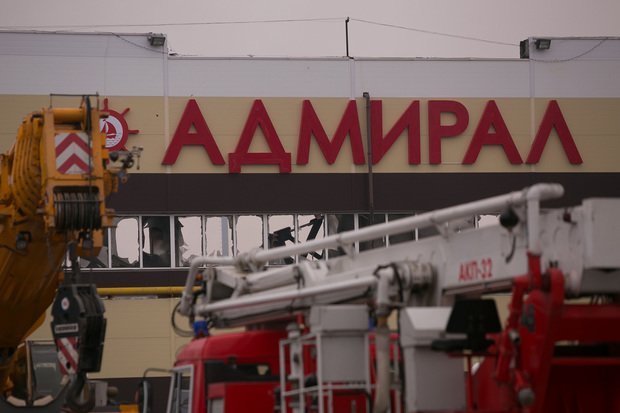
Entrepreneur Lilia Chernikova has lost her business in the fire three times. First in the Vietnamese market, then in Tura market, then in Admiral. She is still convinced that the main defendants in this high-profile case remain free. While ordinary executors of orders from above got in jail.
''Semin personally gave the instruction to give the building of the plant Hammer and Sickle under the trading house Admiral. A fly in the office of this man does not fly without his knowledge. And for some reason all charges were dropped from him,'' Chernikov indignated.
Indeed, one of the richest businessmen of Russia, Alexey Semin, who owns the building, was charged immediately after the fire. The billionaire was even put on the federal wanted list and his property was then arrested. Semin himself, being abroad, all the while was trying to whitewash his name, actively gave interviews to federal TV channels. His arguments about his innocence in the tragedy were based on the fact that he did not take direct part in the management of the company, and the object was exploited by the tenant company Zarya PLC.
Six months later, the investigation agreed with the arguments and all the claims came to naught. As a result, on a dock there were 12 people. Among them, the director general of the company, which is owned by Semin, Robert Khayrullin (according to the investigators, that it is his signatures were on numerous title documents), the main tenant of the shopping centre Admiral, and his father Gulguseyn Nadzhafov (he worked directly with entrepreneurs, was responsible for administrative and economic affairs). The investigators consider that each of these people knew that they exploited a life and health threatening building, but the thirst for profit was above all.
''People were driven here, the minimum conditions so they could trade were created, and that's it. Like an incubator on the ground floor. There were warehouses over the stores, which is also a violation,'' says Aleksey Andrushkevich, the deputy head of the first department at the Investigative Committee in the Republic of Tatarstan.
Thirty million rubles a month — it is the revenue Admiral brought to the owners. However, the shopping centre was more like a typical flea market from the 1990s, where gastarbeiters lived and worked. The former premises of the plant Hammer and Sickle were not officially accepted by any commission. The building did not have the status of a shopping centre. There was no reconstruction. All the more, qualitative fire-prevention system was absent. Hydrants were there for a tick. And someone put these ticks from year to year.
The investigation of the Admiral case clearly showed how the inspection bodies solve business problems. How business solves its problems with the help of supervisory authorities. The shopping centre Admiral, which was operated with gross violations, was repeatedly given orders from the Fire Safety Inspection Service. The case was brought even to court. The court decided to close the complex until all violations were eliminated. However, for some strange and perhaps too obvious reasons, the chief bailiff, Zhanna Alparova, instructed her subordinate Minzilya Safina to close the enforcement proceedings. Inspector of the Building Inspection Service Galia Isayeva also turned a blind eye to all the violations.
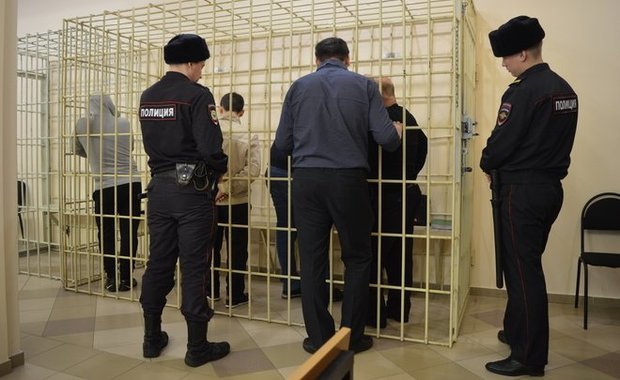
''In the course of operative-investigative events we worked on all hypotheses, including the corruption component. In this case, we didn't prove the fact of a bribe,'' Andrushkevich said.
Investigators believe that the tragedy couldn't be avoided. The old, dangerous building was began to be surrounded by extensions from all sides. During the next works with the gas equipment, there was an ignition of panels from foam plastic with which the building was revetted. The fire went to the upper floors, where there were warehouses with goods. In just a few minutes, the entire shopping complex was on fire.
People still shudder at the memories of Admiral. 19 people were killed, 700 people were recognized as victims. Only one of the accused pleaded guilty — a worker who turned on the burner. Everyone else consider themselves innocent. To somehow make amends to the victims, billionaire Semin allocated 714 rubles 28 kopecks each affected entrepreneur.
Will Innopolis become a Sillicon Valley?
Last Friday, Tatarstan President Rustam Minnikhanov and Russian Minister of Communications Nikolay Nikiforov discussed the problems of attracting new residents to the city of Innopolis, noting that there are certain difficulties with this.
Innopolis today is about 3,000 inhabitants, a school, kindergarten, university, physical and mathematical lyceum. There are objects of trade and public catering. What is lacking here is activity, life itself. Especially the activity of officials. For that Rustam Minnikhanov often criticizes the relevant ministers.
''Your actions are imperceptible so far,'' Minnikhanov reproached the ministers.
One thing is becoming more and more obvious — analogies with Silicon Valley are becoming less appropriate. The California miracle generates a gross product at trillions of dollars at the level of French GDP. In Innopolis, we are talking about the total revenue of 1 billion rubles. Sillicon Valley is called home to several thousand companies, in Innopolis currently there are 68 residents and 8 partner companies.
But the difference is not only in these figures. And it's not even in Innopolis as a model of Russian IT centre, says Viktor Dyachkov, the director general of ICL-KPO VS JSC. The thing is that in Russia, in fact, there is no understanding of how to develop the industry, there is no state policy in this area. The only way out of the problem he sees in the revival of the state planning committee.
''I'm totally serious because I assess what we have in the economy today. It is logical that the state should assume the planning function. Because we do not have a centralized planning today,'' said Viktor Dyachkov.
Nikolay Nasonov, the director of a laser centre in Tatarstan, believes that development will take place only when there is an understanding of its main purpose. And this understanding, first of all, should appear among potential investors of the IT city.
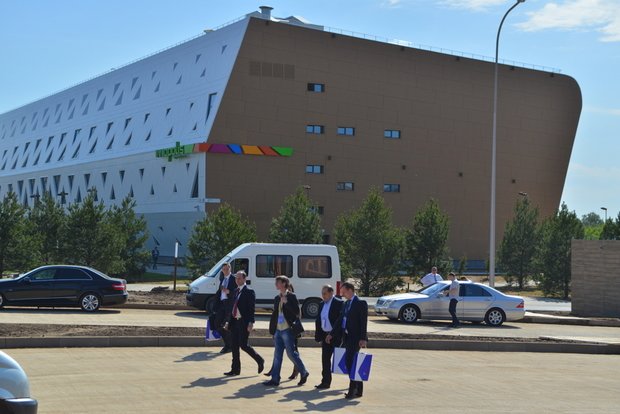
''If we consider Innopolis simply as a place for headquarters of high-tech companies — this is one approach. If we see this city as the centre for development of breakthrough ideas in the field of IT – it is a different model of development,'' says Sergey Maslyokhin, the head of a consulting company.
''The goal is not to rent an area. The goal is to attract players who in mutual cooperation will create a product, breakthrough and revolutionary one,'' says Maslyokhin.
There is still unique environment in Innopolis today. It's hard to deny that. Besides, the infrastructure is quickly filled with life. All the advantages of life is not far from the benefits of civilization, but at some distance from the noise, dirt, bustle of the big city, the locals explain convincingly.
''I do want to return to Kazan at all. Everything here is calm and measured,'' said Timur Samigullin, a resident of Innopolis.
Local cafes, restaurants and even a bar — usually not places for noisy parties. The manager of one of these places, Ramil Iskanderov, says the feature is in the mentality of local people.
''It happens that in Kazan someone overdrinks, gets nasty. There is no such cases here, all the guys here are friends with their heads,'' says Iskanderov.
The advantage of Innopolis, executive director of RTK Soft Labs Artur Meloyan says, on the one hand, in the vicinity of a large metropolis such as Kazan, on the other — in the presence of almost ideal conditions for work of local resident companies.
''Innopolis today is a good alternative to Moscow or St. Petersburg. If you compare the cost of living with the quality of life, we are very competitive,'' says the mayor of Innopolis, Ruslan Shagaleyev.
Today there are four entry points to Innopolis. The first is to become a resident company of the special economic zone Innopolis. The second — to become a student of the local university. The third — just buy a housing in the city. And the fourth — to become part of the local urban business.
The city already has two supermarkets, a pharmacy, beauty salon, several cafes and restaurants, flower and bookstores. Attractive side — low rental rate for business (100 rubles per square metre). This is significantly lower than, for example, in Kazan. But there is one limitation — the number of inhabitants. Three thousand Innopolis inhabitants have enough trade objects and food stores.
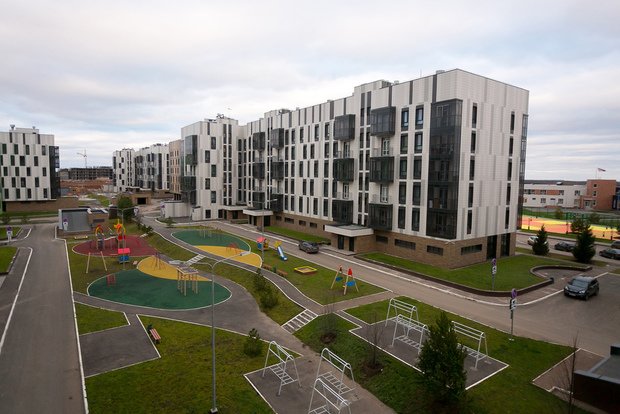
Officials deaf to the problems
The editorial board of 7 days received the request for assistance from Rustem Valeyev, the chairperson of the society of the deaf in the Republic of Tatarstan. According to him, it is not easy to find a job today for the majority of deaf people in Tatarstan — every third able-bodied person with hearing impairment is in this situation.
The chairperson of the society of the deaf in Tatarstan says that thanks to the support of the president, the public organization of the deaf has its own premises. Here Rustem wanted to open a bakery, where there would be jobs for the deaf.
''We could employ 10-12 disabled people here. This is a small amount, but it is very essential. Because it is comfortable for deaf people to work together with other deaf people, they can talk, communicate,'' Valeyev tells.
There is only one small problem — to buy the equipment. Rustem calculated that they need 700,000 rubles.
''Officials constantly advertise that they care for disabled people. Therefore, we have turned to the ministry of social protection,'' says Valeyev.
Rustem shows us two unique, from his point of view, answers received from the ministry of labour, employment and social protection with a difference in a month. He asked to allocate a loan for creation of jobs. On February 27, he received the response signed by Deputy Minister Mubarakshin: ''The budget code does not provide for allocation of loans.'' Another response signed by Deputy Minister Tazetdinova came on March 20: ''Budget loan can be granted to a legal entity, but the law on the budget of Tatarstan does not provide for allocation.''
''The state is to allocate money to solve these problems, but as it turns out, it is almost impossible to get the money,'' Valeyev complains.
The last hope — a bank. Rustem says it has agreed to give a loan at 700,000 rubles for the purchase of equipment. But they asked for security — an agreement with the social security authorities that they compensate for the cost of jobs creating. Rustem failed to obtain the document. The chairperson of the society of the deaf notes that the social protection authority promised to allocate a subsidy, but only after jobs are created.

The chairperson of the society of the deaf cited the statistics. Tatarstan is home to 5,498 people with hearing disabilities. If we exclude children and pensioners, it remains 2,000 able-bodied. What is more, today every third special person is unemployed.
''We have turned to Rustam Nurgalievich [Minnikhanov] for six times with requests based on our real needs, our troubles and problems. The president immediately considered all our requests. But we have to turn to the president each time on all these issues? They have enough other problems, it is embarrassing to do,'' Valeyev says.
The state solves the problem of employment of disabled people from school. In 2016-2017, Tatarstan implemented an interdepartmental programme for comprehensive training and social adaptation of children with severe disabilities. The decree of the Cabinet of Ministers specifies six houses and boarding schools. The amount of financing amounted to more than 250 million rubles.
Vadim Ionov graduated from the boarding school named after Lastochkina, where most students are deaf or hearing impaired, in 1991. Now he teaches there. Asked whether all his classmates were able to find a job, Vadim answered: out of 24 graduates only two or three people were able to find a job.
''We have the statistics of annual employment of disabled people, but we do not know what part of the disabled fall into outflow from the places where they were employed,'' explains the chairperson of the Tatar republican organization of the All-Russian society of disabled people, Rifat Ganibayev.
''It is not an easy task to employ the special person,'' says the chairperson of the society of disabled people of Tatarstan. Out of 82,900 disabled people, only 30% have found jobs today. In 2017, 2,522 people were employed. This is 58% of the number of applicants. The programme implemented in boarding schools is very important, Rifat Ganibayev notes. Universities also conduct a huge work. Why are there problems with employment? The reason may be in the employer — because they will have to create special conditions, and in the applicant — whether his of her specialty is in demand.
''We are preparing a draft bill for discussion in the State Council of the Republic of Tatarstan on the second free higher education for people with disabilities,'' says Ganibayev.
Rustem Valeyev, the chairperson of the society of the deaf, is ready to create necessary jobs with special conditions. There are already those wishing to work. The only question is how to buy equipment and run a bakery.
''We tell the officials: please, help. But the feeling is that it is not we who are deaf and blind but them,'' Valeyev sadly notes.
The conflict over the incineration plant
The situation over the construction of a waste incineration plant in Kazan worsened last week. Today, the proposed construction site is located in relative proximity to the village of Osinovo and the residential complexes Raduzhny and Salavat Kupere. Last week, the president of Tatarstan ordered to conduct a broad discussion and ecological expertise of the project. On his instructions, Mayor of Kazan Ilsur Metshin met with the initiative group of residents.
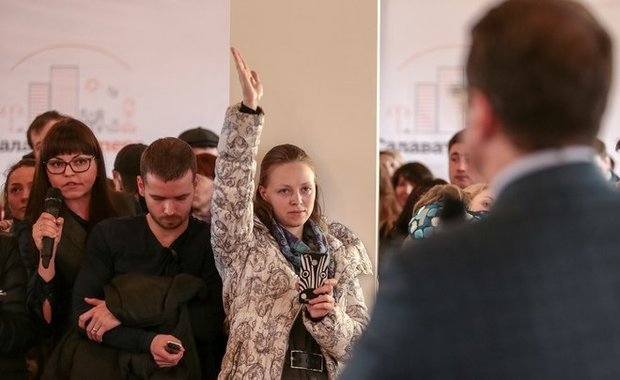
At the meeting with residents of Kazan and Zelenodolsk district, Ilsur Metshin indirectly commented on the idea of building the plant quite far from the settlements. If you listen carefully, you can understand that this is impossible.
''A huge amount of electricity, gas, water and related infrastructure, which is available not in all parts of Kazan. And there are no available 10 hectares. That is why this site has been chosen. There is no no sacrifice,'' the mayor explained at the meeting with the residents.
That is, it won't be possible to choose any other place for the construction. Just because 'any' won't be appropriate. A plant can be imagined only in dreams in the midst of a collective farm field far from Kazan. On Thursday, the mayor proposed to create a working group, including from local residents. A group that would assess all the risks by the summer, that would personally get acquainted with the European experience and come to conclusions based on the experience, not wild guesses. But even this is still developing with difficulty.
''Have we come here to vote? We're here to discuss the problem. I'm telling you as mayor, the problem is enormous. And it grows in thousand tonnes,'' Metshin emotionally expressed the arguments.
''It will take years, perhaps, decades. And only then we will raise the question of the construction of a plant. Now this decision is premature,'' a woman who came to the meeting expressed a point of view. The crowd approvingly applauded her.
The arguments of the residents are not unfounded. No matter how ultra-modern the plant would be, it is still wrong to incinerate everything. European factories, which are hundreds, do not do that. Separate collection seems to solve the problem, but it will take much time before each of us has three or four bins at home. The mayor thinks we should start rebuilding already now. The residents answer that we should wait for a couple of decades. Whether it is possible to find a compromise in this issue, it is clearly seen in two days after the meeting with the mayor, on Saturday at a stadium in Osinovo.
''They have Japanese technology, but our officials will covet that money,'' the residents said angrily.
Paradoxically, both sides are fighting for clean air but through different methods. The executive committee is doing its best to stand on a par with the protesters, but of course, it fails to do it immediately.
''Listen, how long are going to fight? Give it a rest. And now you've definitely decided to poison us!'' a local resident shouted to the applause of the angry crowd to the mayor.
''Dear, we are the first in Russia to close the landfill with the burial of 46 million tonnes. It's my job, which I as the mayor did,'' retorted Metshin.
Compromise is not noticeable yet. It will be possible to tell something when a working group is established, if one is. The difficulty is not in moving along the chosen path, the difficulty is in choosing this path.